Italy trip, Bitcoin-powered missionaries, parable of the talents
Brescia, Roma, Assisi lessons
Hello friends!
I’m back from Italy, where I researched our teaching mission on the ground before going on retreat in Assisi and Rome. Here’s what happened, plus other mission updates, and the latest in Bitcoin.
What happened in Italy in May
In March 2025, I received three messages to go to Rome while discerning prophetic prayer at an Encounter conference. One reason became clear shortly after I arrived on May 8th: the College of Cardinals elected Pope Leo XIV. I watched the live stream from Brescia with a priest and two members of his community, one a seminarian and one a university student discerning seminary. I felt the immense reverence of the Holy See as an institution and was inspired to research its well-known financial challenges. I learned about the unfunded pension and budget deficit. Later in the trip, I stayed with a community of priests just around the corner from St. Peter’s. They’ve had to make cuts in their mission due to inflation. I believe the lead priest has a Vatican pension, as he has worked there for over a decade.
Since mid-May, I’ve been writing a post about how we can fix these problems, weaving in the stories of the people I met in Italy. Stay tuned for that; it will also be included in the sixth post in our course: The Material and Spiritual Consequences of Fiat Money.
La Conferenza Bitcoin Italiana
While in Brescia, I also attended Italy’s Bitcoin conference, BitCare Forum ‘25. There were over a thousand attendees and forty speakers. My goals were to understand the Bitcoin movement in Italy and to see if there were startups I could invest in to qualify for an investor visa, allowing me to work near Rome on this apostolate.
I learned from a Bitcoiner named Alessandro that adoption is slower in Italy because many Italians enjoy a high quality of living. However, he said adoption is picking up because Italians are known to save in physical cash, and they are noticing inflation eroding that stored value.
Regarding the investor visa, it became clear that it would be challenging and time-consuming both to find a company to invest in and apply for the visa, so I’ve put working in Italy on the backburner for now.
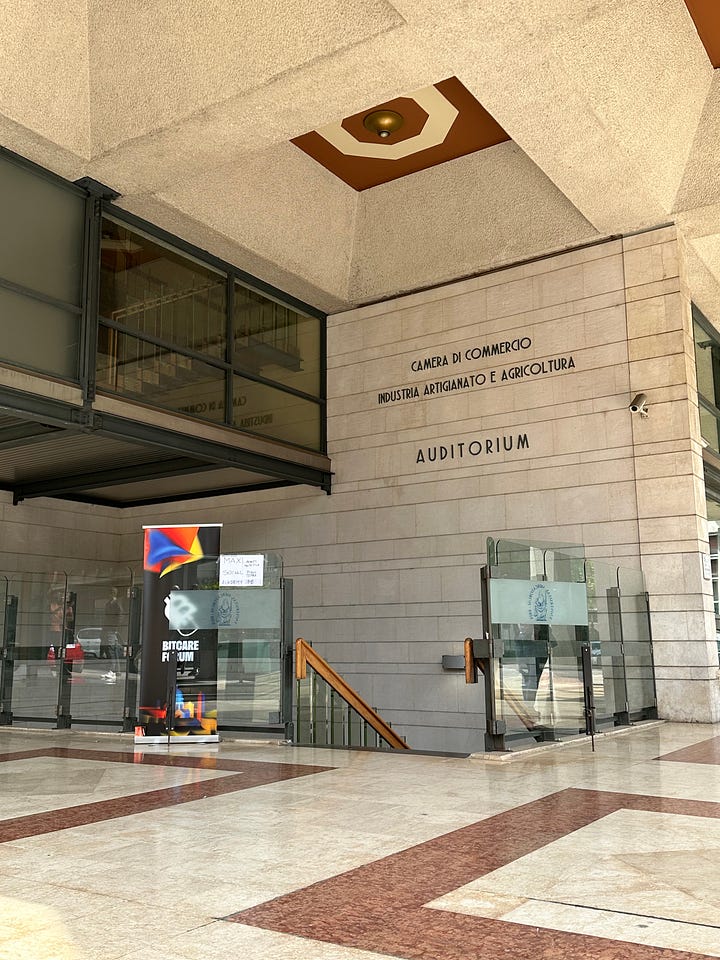
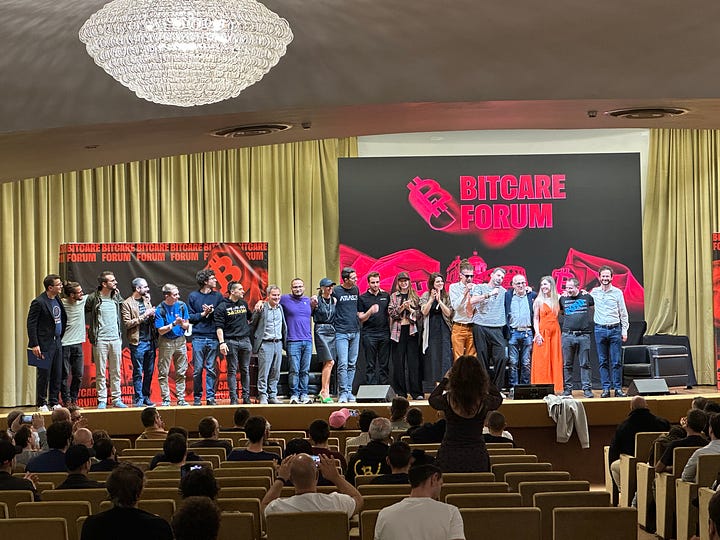
A retreat in Assisi and Roma
After two weeks of research, I decided to extend my trip, going on a week retreat: five days in Assisi and two in Rome. Walking, reading, and contemplation brought lovely spiritual gifts, including a greater awareness of death and the reality of the Creed. Saint Paul’s tomb outside the walls was memorable. Also, Pope Leo’s Inauguration Mass a week prior, especially the sung Latin litany of the saints.
In Assisi, I spoke with many Franciscans, including a brother from the Friars of the Renewal. He once was uber passionate about Austrian economics, the framework we use to teach inflation. I asked him what he thought was the most Franciscan economic insight we could use for our mission. He thought the Austrian school’s focus on prices being subjective, mentioning how additional glasses of water in a desert—beyond the first—deserve a lower price as thirst is quenched. This truth applies to the price of money—Franciscans have no use of holding money thus none for buying bitcoin. I’ve used the insight in conversations since!
Return to Canada—citizenship and retirement planning
I flew back to Toronto in late May and have since been working on two projects: our Italian citizenship case and simplifying my parents’ retirement accounts. After completing these, I’ll finish the course and intend to begin teaching in person.
I started the citizenship project in 2022, gathering vital documents—some that had delivery times of longer than a year! I’ll send them off to our lawyer soon; he expects a judge to recognize our citizenship in late 2026. This would permit me to live and work in Europe. Should the Lord wish that I work there earlier, I trust He’ll open the door!
Regarding the retirement accounts, I’ve been researching new Bitcoin-backed fixed-income products. These are game-changers for retirees, as these bond-like instruments will better keep pace with inflation and help ensure our elders have dignified retired lives.
Our campus missionary got promoted
In other exciting news, the first missionary we funded with bitcoin has been promoted, and we’re happy to support him for another year! Sean is now a team leader for Catholic Christian Outreach on Queen’s University campus in Kingston, Ontario. We’ve adjusted how we fund him this year, learning from last year in discussion with Sean. I’ll share more about that in a future post.
This re-up, combined with hearing George Weigel state in an April interview that two of the new pope’s first focuses will be missionary work and operational sustainability, has inspired me to explore expanding part two of our mission—funding non-profits and charities—with a greater emphasis on funding missionaries.
Michael Saylor on Jordan Peterson’s podcast
In Bitcoin community news, Michael Saylor, the world’s most prolific Bitcoin educator, appeared on Jordan Peterson’s podcast last week. I recommend it. Mr. Saylor’s software company was the first public company to adopt a bitcoin savings strategy in 2020. His background in aeronautics, the history of science, and fantasy makes him uniquely fit to teach Bitcoin. He has refined his delivery of the Bitcoin story since his first podcast appearance. Not perfect use of religious terminology but that’s okay—that’s where we come in! Thank you for your work educating, Mr. Saylor!
Also, Dr. Peterson offered a lovely reframe when Michael reduced the Bitcoin mission to “people wanting to keep their money” at the end. JBP sounding quite Catholic!
A Gospel-inspired reflection on saving in bitcoin
Last Friday morning, I quickly wrote this reflection on the parable of the talents before going to Mass. The economic reading of the parable is about the choice to invest vs. save. “And to one he gave five talents, and to another two, and to another one, to every one according to his proper ability: and immediately he took his journey.” Here’s my reflection:
The interest rate—defined as the cost of borrowing money or the return on savings, as a percentage of the principal amount—is God’s natural law in economics. It is the Lord telling us, by giving us a base return on savings, if we are to build, to invest, or to do something with the intention of getting a return on the capital, what return should we aim for at minimum? For surely the Lord would again scold us if we were better off just putting the money in a bank: “Thou oughtest therefore to have committed my money to the bankers, and at my coming I should have received my own with usury.”
For the servant scolded, he earned a rate of return of 0%, because he did nothing with the gift. Let’s say the interest rate was 3% at the time, which he decidedly underperformed. Well, if you have faith in bitcoin, then the “interest rate” in the bank of bitcoin is currently ~52% a year. We ask ourselves: Lord, can I beat 52% a year with any project, a new real estate development, this new highway, this set of new economic immigrants in the hope our company will return 10% this year?
The answer is NO. For most projects, of course.
For those with eyes to see and ears to hear, the Lord is telling us to put our money in the bank and stop investing in things that are not good right now, or worse, bad for us.
In the parable, if the interest rate at the time was really high, like 52%, the Lord might have told the servants to save, then invest later when the interest rate comes down. Sometimes it is better to simply slow down and save, and reflect on the action we’ve been taking. Now, bitcoin isn’t yielding interest, so it’s not directly applicable to the parable, however it is how Bitcoiners think and act, believing it to be true money. Dr. Adam Back—the cryptographer mentioned in the Bitcoin whitepaper—posted similarly inspired later that day:
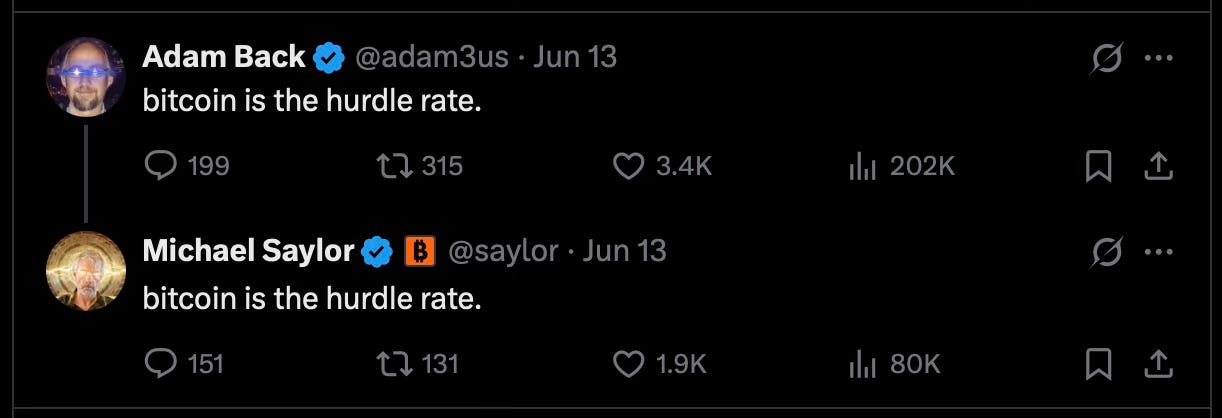
Then Michael Saylor followed up, as you can see. Some spirit moving through the community that day.
That’s all for this week. Coming up soon: the Bitcoin & Holy See finances post, then part six of our course.
Have a nice week! God bless!



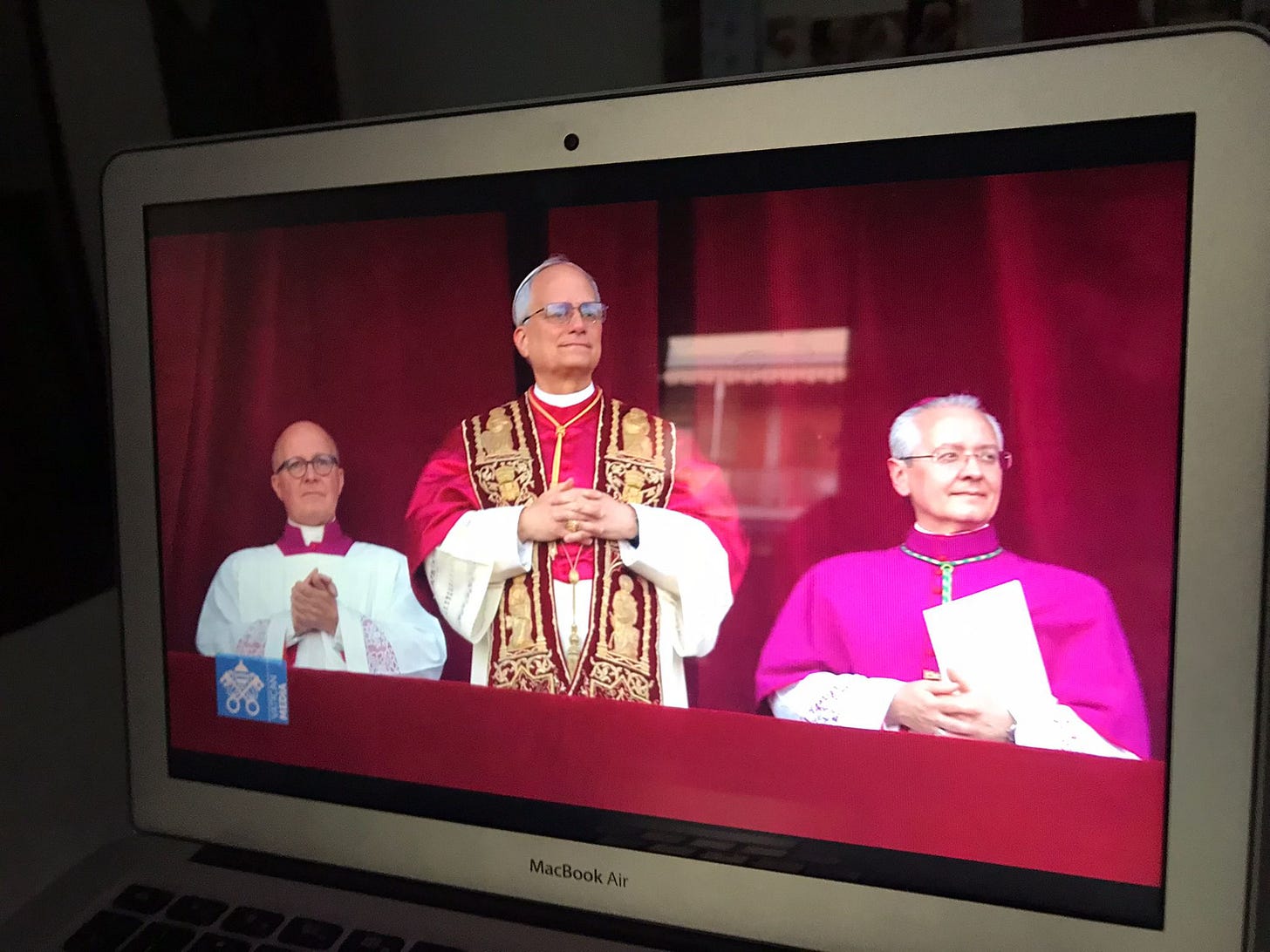
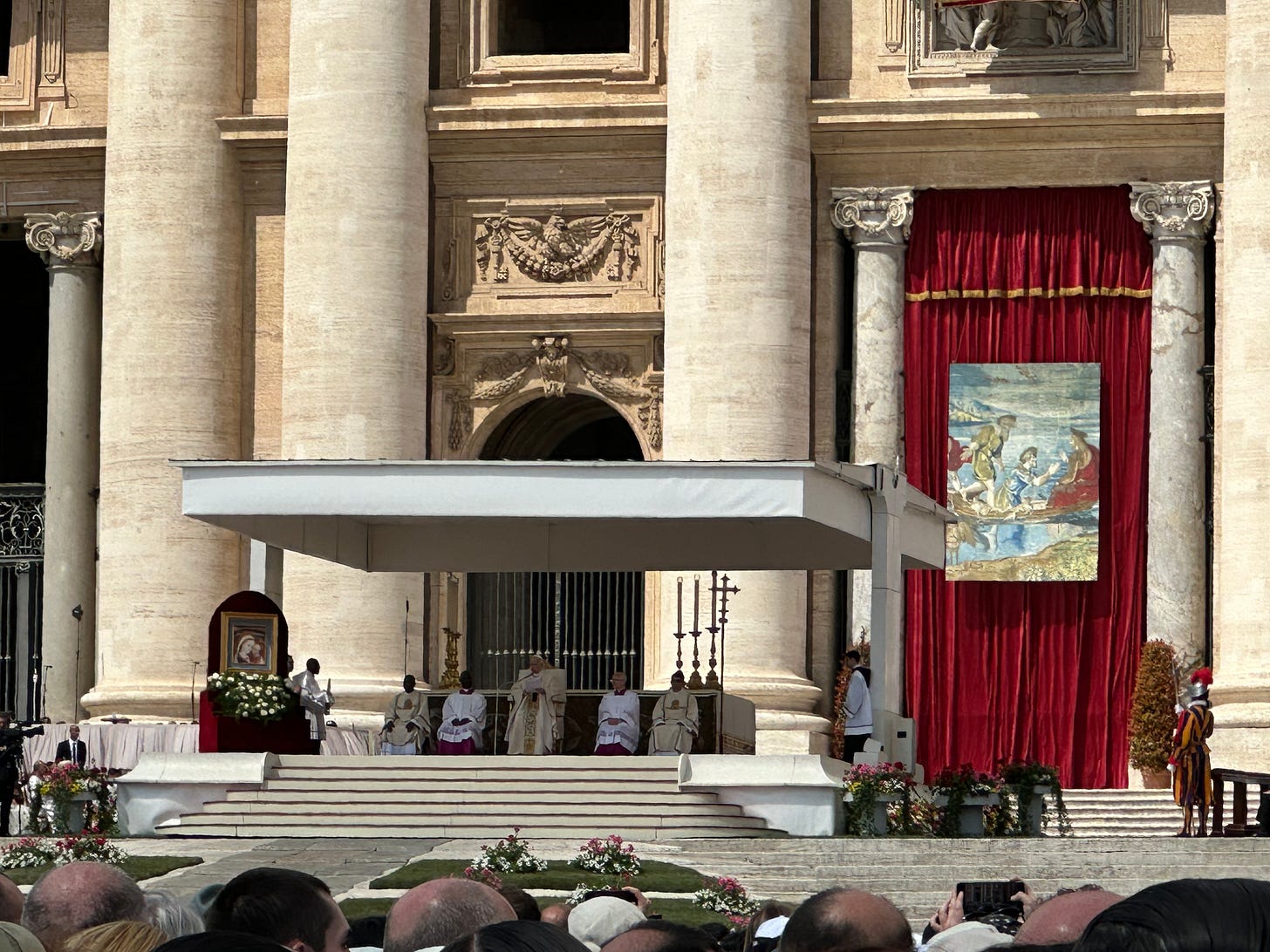

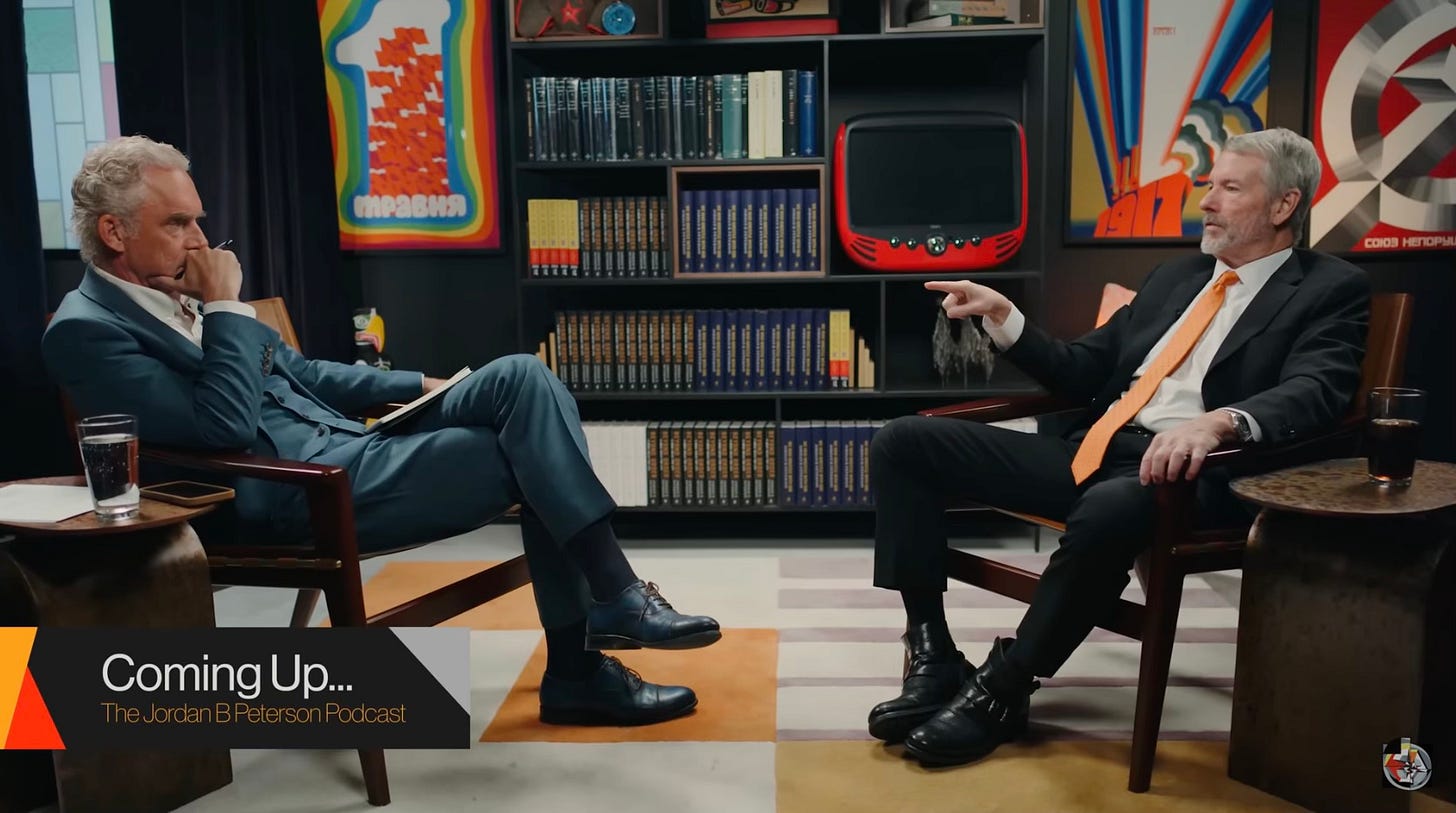
Sounds like a fruitful trip. I am too working on my Italian citizenship. I started in fall of 2021 and hopefully have it completed later this year. Retiring on Bitcoin in Italy doesn’t to sound to bad, right?